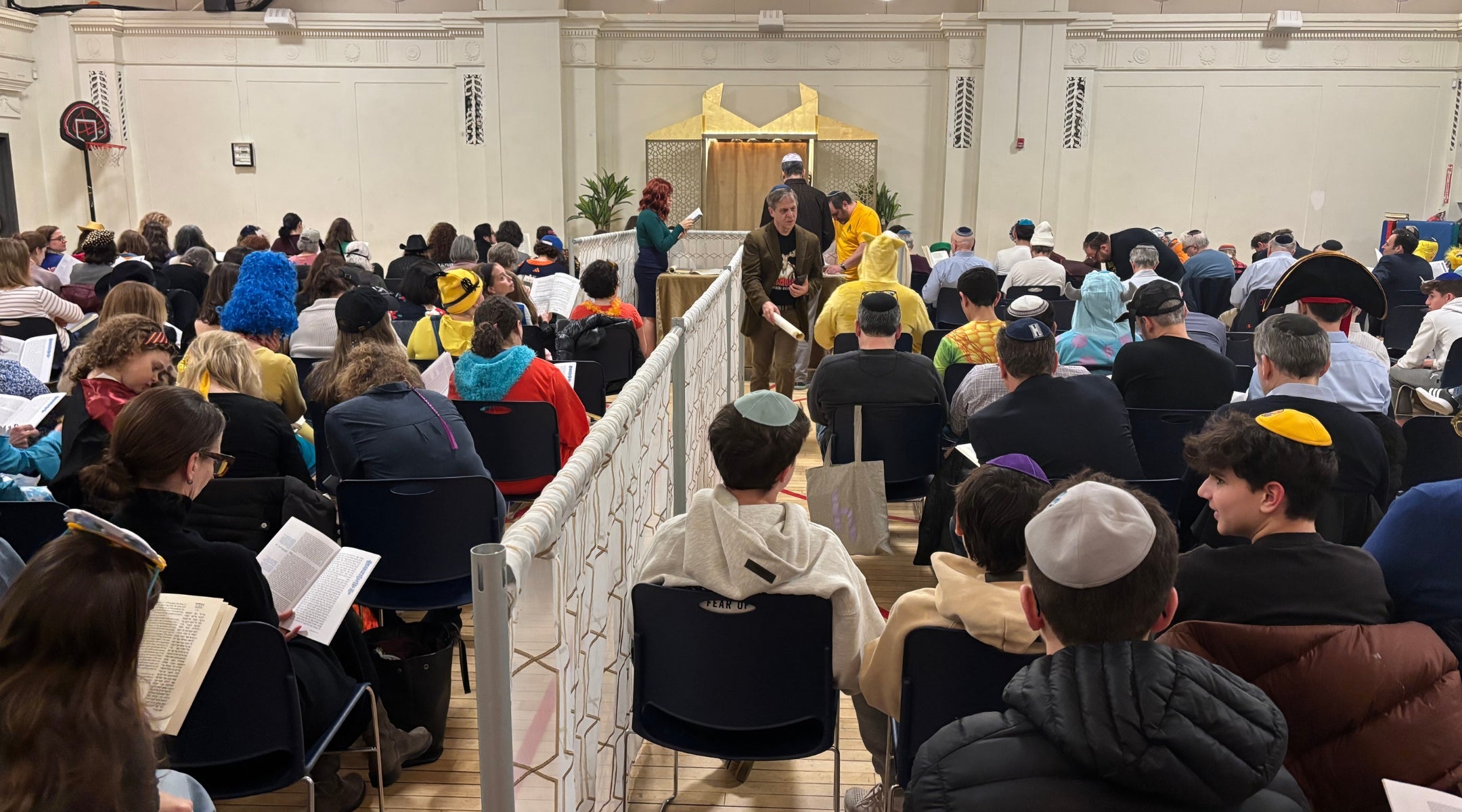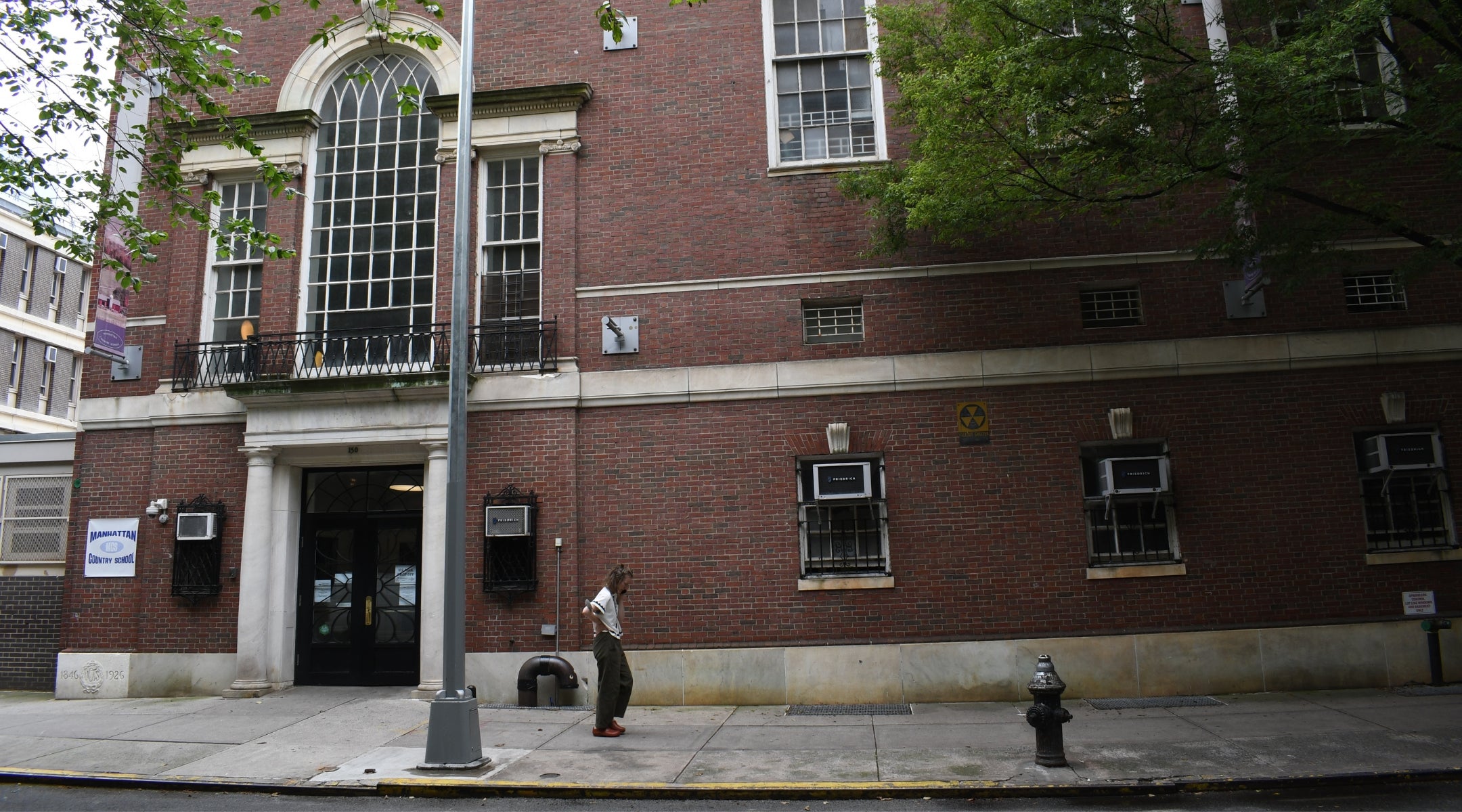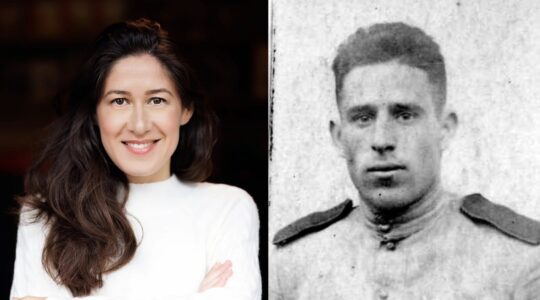An Upper West Side congregation is homeless after the non-sectarian private school where they held services lost its building after declaring bankruptcy.
Darkhei Noam, a lay-led minyan with some 290 families, has been holding its Shabbat and holiday services at the Manhattan Country School, housed in a townhouse at 150 West 85th Street. The congregation has rented space at the school since 2017, the year the progressive private school moved into the building. (Darkhei Noam’s lease at MCS was set to expire in 2034, according to bankruptcy documents.)
But as of Thursday, June 19, the school, which was sued by its lender for nonpayment last October, has been shut out of its former building — and so has its synagogue tenant. As the future the Manhattan Country School — which was founded in 1966 and is known for its diversity and sliding-scale tuition fees — remains uncertain, Darkhei Noam members and leaders are scrambling to find a new home.
“Our determination is not to skip a Shabbat,” Paul Wachtel, co-chair and co-director of Darkhei Noam’s board, told the New York Jewish Week.
Wachtel said that when Darkhei Noam learned of the liquidation order from the bankruptcy trustee that Thursday, one synagogue member suggested the group simply forgo that weekend’s Shabbat services. “Our answer was, ‘absolutely not,’” Wachtel said.
So between that Thursday afternoon and the beginning of Shabbat the next evening, Darkhei Noam members removed its chairs and prayer books from the gym on the school’s second floor, carried them down the stairs — the elevator was broken — and walked them over to a nearby Conservative congregation on West 88th Street, where they held Friday night services. (For security reasons, that synagogue has asked not to be named.)
For the remainder of the summer, Darkhei Noam will meet at a Reform synagogue on West 83rd Street, which also asked not to be named. Concurrently, a roughly 10-person “space committee” is searching for a new, permanent location for the congregation to call home.
“We’re committed to maintaining the community, and we’ll figure out a way to do it — hopefully without going week to week, scrounging a space each week — but finding a new, permanent home where we can flourish the way we have been,” Wachtel said.
Founded in 2002, Darkhei Noam is one of several independent minyans on the Upper West Side. These groups are generally unaffiliated with any particular denomination or organization, though they typically adhere to Conservative or Orthodox religious practices. Other well-known minyans in the neighborhood include Minyan Marom and Kehillat Hadar; these groups are usually lay-led, relatively young and often do not offer everyday services.
Meanwhile, MCS serves approximately 256 students in grades pre-kindergarten through 8th grade, who also spend time on a farm in Roxbury, New York. Last October, families learned that the school faced bankruptcy due to declining enrollment and struggling finances in the post-pandemic years, and that the building was facing foreclosure.
Though the $3 million lawsuit by Manhattan Country School’s lenders, Flushing Bank, which also holds the building’s mortgage, was filed last October, Wachtel said the Darkhei Noam community was not aware of just how dire things were until May of this year.
“We didn’t think that any kind of imminent closure was on its way,” Wachtel said.
In mid-May, Manhattan Country School enlisted the help of Casa Laxmi, a Canadian educational foundation that shares their ideology, in the form of an $8 million loan. “They were very optimistic about that,” Wachtel said. “We breathed, perhaps prematurely, a sigh of relief.”

Purim services at Darkhei Noam were held in the Manhattan Country School gym. (Courtesy Paul Wachtel)
That arrangement fell through, and the doors were locked to MCS — and to Darkhei Noam — by the afternoon of Friday, June 20. (As Bloomberg reported, the school owes the bank about $25 million; the building is estimated to be valued at $38 million.)
Richard McCord, a lawyer for Flushing Bank, declined to comment, and Al Togut, the Chapter 7 trustee for Flushing Bank, did not respond to a request for comment.
In 2023, Darkhei Noam even contributed, on top of their monthly rent, about $66,000 toward the cost of an air conditioning system in Manhattan Country School’s gym, where services were held Friday nights and Saturday mornings. (Samet and Wachtel declined to share how much Darkhei Noam paid in rent at MCS, due to ongoing rental negotiations at potential new spaces.)
Allie Alperovich, an Upper West Side lawyer and mother of two daughters, has been a member of Darkhei Noam since its founding.
“This is not just a minyan for individuals,” Alperovich, a former co-chair of the board, said. “We’re really there as families. Our kids have grown up going [there].”
One of Alperovich’s daughters had her baby naming at Darkhei Noam, and both of them had their bat mitzvahs there, she added.
“It offers something that’s unique on the Upper West Side, in terms of the traditional minyan with really meaningful participation by women and men,” Alperovich said. “And that level of community involvement is really important to us.”
Darkhei Noam describes itself as a “partnership minyan,” a term for traditional congregations that try to maximize women’s participation. Women are able to lead the service or read Torah, as they might in a non-Orthodox congregation, but women are still seated separately from the men. And while lay-led synagogues don’t have rabbis as their official leaders, Darkhei Noam has a halachic, or Jewish legal, advisor, Rabbi Daniel Sperber, who joined the community in that position, remotely, in 2006. He lives in Israel and visits approximately once a year.
“The fact that we are lay-led is a very important part of our purpose and our mission, and that we’re within the framework of Orthodox halacha,” Sharon Samet, co-chair of the board, said.
But that unique combination also limits where, exactly, Darkhei Noam can hold its services: It must be close to the community’s former location on West 85th Street, as members live in the area and need a space that’s within walking distance, as traditionally observant Jews do not use transportation on Shabbat or holidays. Furthemore, the host location has to be willing to accommodate Darkhei Noam’s religious practice.
“We have women leading certain parts of the service,” Samet said. “So generally, Orthodox shuls won’t accept us.”
On any given Shabbat, Darkhei Noam has about 200 people in attendance; for special occasions, like a bar mitzvah or guest lecturer, the crowd can swell to 300. The synagogue has a youth coordinator and learning activities for all ages, including children and teens.
For now, the minyan’s space committee is optimistic that they’ll find a new permanent home by the fall.
“It’s in high gear, looking at every single possible space — schools, churches, community, places, commercial, commercial spaces — whatever you can think of,” Wachtel said.
As for Manhattan Country School, its future remains uncertain. Keeping the school afloat through the end of the 2024-2025 academic year relied on outside help; MCS was forced to dip into 2025-2026 academic year deposits to cover payroll, and supporters contributed to a GoFundMe campaign to cover employees’ salaries and benefits.
On May 20, Bloomberg reported that a press release on the school’s website indicated the school would remain open and is accepting applications and tuition payments for the 2025-2026 year. That statement is no longer available on the MCS web site.
MCS did not respond to multiple requests for comment.
“We’re a community that is very good at being flexible, and when we need to, being really flexible and rolling up our sleeves,” Alperovich said of Darkhei Noam. “But I still think it’s really important that we have a home that is a consistent weekly home for our community.”
Still, Alperovich admits that old habits die hard. After all, she’s been walking the same route to Shabbat morning services for nearly eight years.
“The first week where we weren’t meeting at MCS — I live about a block away — and even though I knew where to go, because we had a temporary space to go to, I actually turned the wrong direction and walked to our MCS anyway,” Alperovich said. “Because I think there is something, really, where your synagogue feels like home.”
The New York Jewish Week brings you the stories behind the headlines, keeping you connected to Jewish life in New York. Help sustain the reporting you trust by donating today.





